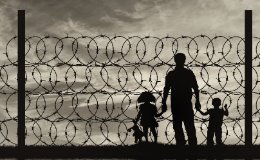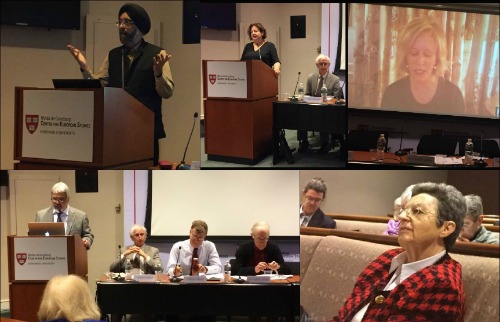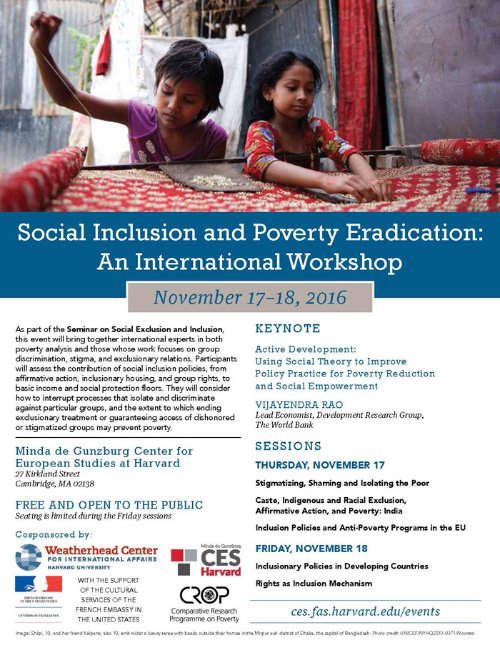Social Inclusion and Poverty Eradication

WORKSHOP organised by CROP (ISSC/UiB) and Minda de Gunzburg Center for European Studies and the Weatherhead Center for International Affairs, both at Harvard University
Workshop Description
Social exclusion and poverty are interrelated in multiple and complex ways, depending on the context in which they occur. Poverty is not only about income or material deprivations, but also interferes with human development and full participation in society. Conversely, members of groups who suffer exclusionary treatment may be victims of economic discrimination and eventually fall into poverty, but not all members of socially excluded groups are poor. In brief, we need a better understanding of the complex multiple ways that social exclusion and poverty are interrelated and the consequences of those interconnections for contemporary societies.
This workshop will explore the ways in which social exclusion contributes to poverty, and how social inclusion in various spheres may reduce it. Particular attention will be paid to the policies that are currently in place to achieve the Sustainable Development Goals that aim to end poverty in all its forms (Goal 1) and empower and promote the social, economic and political inclusion of all (Target 10.2). Participants will assess the contribution of social inclusion policies, from affirmative action, inclusionary housing, and group rights, to basic income and social protection floors. They will consider how to interrupt processes that isolate and discriminate against particular groups, and the extent to which ending exclusionary treatment or guaranteeing access of dishonoured or stigmatized groups may prevent poverty.
The event will bring together international experts in both poverty analysis and those whose work focuses on group discrimination, stigma, and exclusionary relations.
We would like to invite proposals for papers that focus on such questions as:
- To what extent does poverty contribute to social exclusion, and how does belonging to or being identified with stigmatized or excluded groups contribute to and reinforce socioeconomic disadvantage? What are the various mechanisms through which these reciprocal causal processes work? Are they amenable to change?
- How do social inclusion policies contribute to poverty reduction? What can be done to alter exclusionary processes and boundary mechanisms directed at particular groups? To what extent do ending exclusionary treatment of Groups and enforcing equal opportunity also prevent poverty?
- Will integrating segregated institutions, occupations, and spaces reduce poverty? Will it do so at the price of social conflict or other negative outcomes?
- How do the various cultural bases of stigmatization or exclusion (religious, ethnic, racial, national or other) vary in their association with poverty across national contexts?








